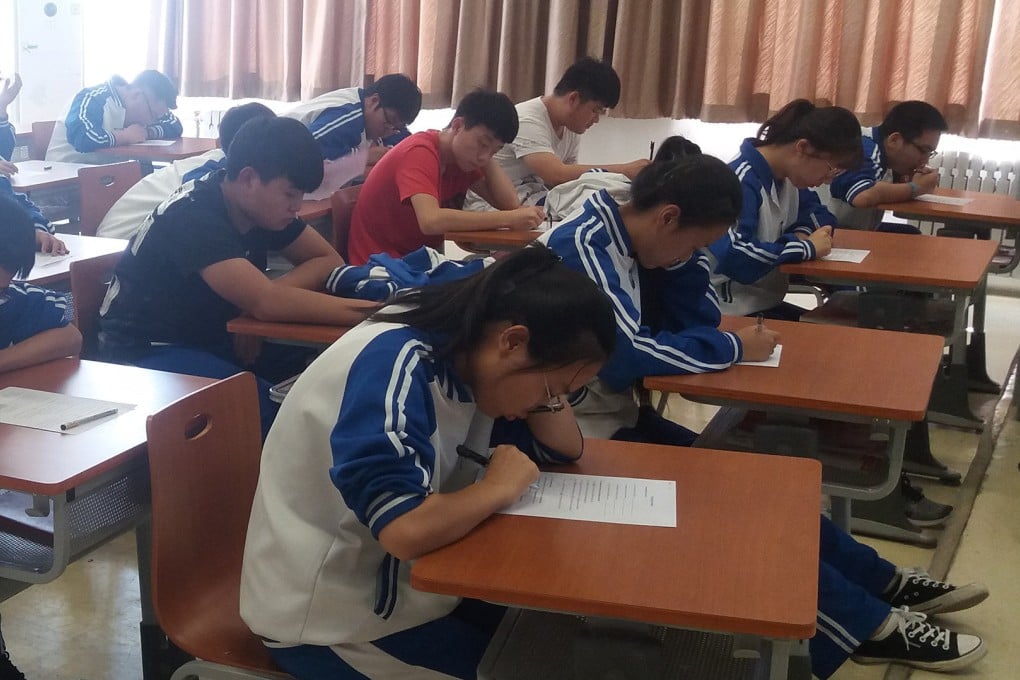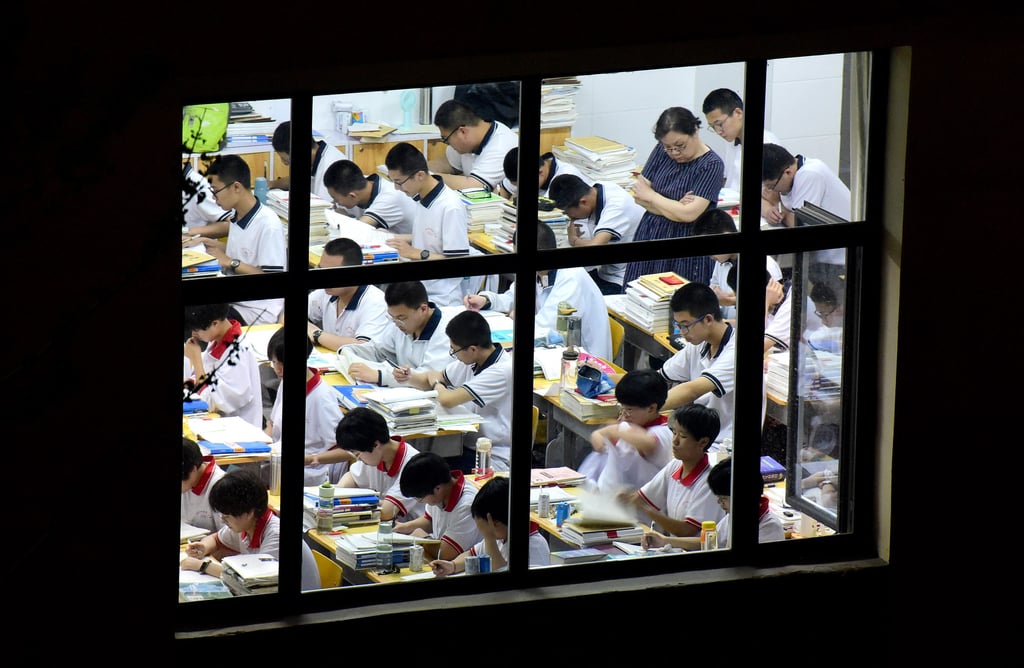Studying machines: China secondary schools impose ‘don’t look up’ rule in class to stop distractions and improve study
- Intense competition means schools in China are seeking ways to force better performance from students to secure top results
- Some schools get teachers to spy on classes with eye-peeping holes to check if students are sleeping or playing with pens

The theory of Neijuan, involution in English, which argues competition in modern workplaces is futile and counterproductive as more people compete for the same number of jobs, has appeared in Chinese secondary schools.
The concept is becoming increasingly popular in mainland secondary schools, particularly where students vie for limited admission placements.
Intense competition means schools are compelled to develop more solutions to force them to study more diligently than ever to secure university placements for their students.

This is where measures like the recently popular “heads-up rate” come into play. This behavioural measure has been adopted in many secondary schools across China. It counts how many students raise their heads in class when unexpected noises occur to measure their concentration levels.
Wang Yimei, a secondary school student from northern China’s Hebei province, told online news site Meiri Renwu harsh punishments had accompanied the implementation of the heads-up rate in her school.
“If you’re caught looking up, it’s considered a violation of rules. Once caught, you have to stand as a punishment for the entire day. From 8am until 10pm.”
Some teachers reportedly test students’ concentration by deliberately making noises, such as door knocks and other sounds and students caught looking up will be punished.
The expansion of these performance measurements in secondary schools has led to growing public concern and online debate about their merit.